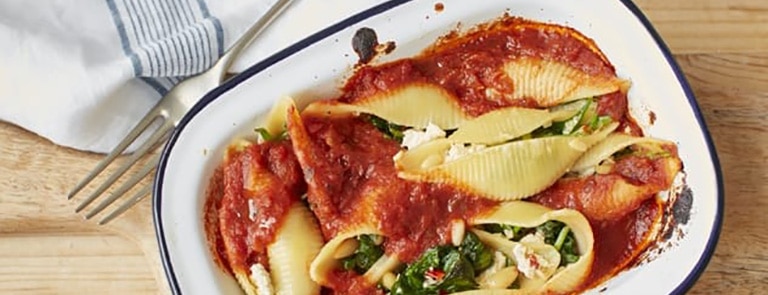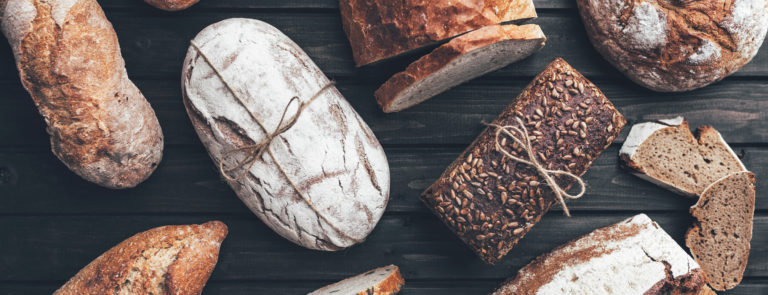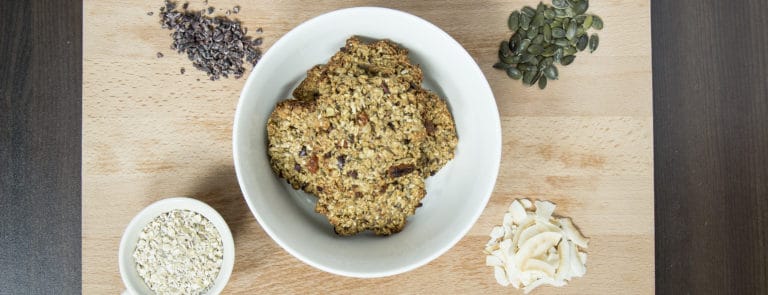15% off £35 OR 20% off £45
What are natural foods? 12 health benefits
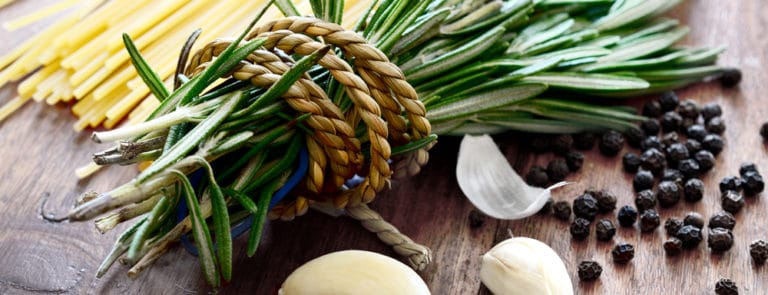
Is natural always best? And what does natural even mean when it comes to the food we eat?
Find out everything you need to know about natural foods and 12 health benefits associated with them in this guide.
What are natural foods?
The term ‘natural foods’ is banded around here there and everywhere in the foodie world – usually accompanied by images of luscious farmland and grazing animals.
But what does it actually take for a food to be ‘natural’?
Natural foods and drinks will mean something different for everyone as it’s a pretty vague and un-policed term.
But, generally speaking, natural foods are:
- Free from synthetic and artificial ingredients or additives
- Unprocessed
- Full of nutrients
For example, a carrot picked straight from the ground would be classed as natural but that carrot cake on the shelf in the supermarket – not so natural.
Summary
- Natural foods are free from artificial/synthetic ingredients, unprocessed and usually richer in nutrients, e.g. fresh fruit and veg
Natural food vs organic foods
Natural foods may have certain crossovers with organic foods, but they are two totally different things.
‘Organic’ is a protected term that is subject to legal regulation.
In order for a drink or food to be labelled organic, at least 95% of the ingredients must come from organically produced animals or plants.
These ingredients must be approved by an independent certification body, like the Soil Association Certification, who certify over 70% of organic food in the UK.1
The main aim of organic food production is to limit the environmental impact as much as possible.
The European Commission states that organic farming is required to encourage:2
- Maintenance of biodiversity
- Responsible use of energy and natural resources
- Preservation of regional ecological balances
- Maintenance of water quality
- Enhancement of soil fertility
On the other hand, the term ‘natural’ is not subject to legal regulation.
This is why you can’t always trust food packaging has ‘natural’ plastered all over it.
Handpicked content: Why go organic? The pros & cons
Summary
- Organic food is a protected legal term for food that has less environmental impact, e.g. organic vegetable growers won’t use chemical pesticides that harm the soil
- Natural foods also follow most of this logic, but it is more of a vague term to describe food that is un-altered and as nature intended it to be, e.g. a fresh potato from the ground rather than a portion of French fries
Natural food vs processed food
Processed food includes any food that has been altered from its natural state in some way.
The term has been somewhat demonised over the years, but the truth is that not all processed food is necessarily bad for you.
Food processing can be as basic as:
- Canning
- Freezing
- Baking
- Drying
Does it make sense to turn your nose up at frozen peas just because they’re not deemed ‘natural’? We think not.
Although it is best to stick to natural foods where possible, here are some examples of processed foods that may surprise you (and are perfectly fine to include in a healthy, balanced diet):
- Milk
- Cheese
- Tofu, tempeh and other soya products
- Plant-based milks
- Breakfast cereals
- Tinned vegetables / fruit
- Dried fruit
- Oil
- Bread
- Vinegar (we see you apple cider vinegar!)
The processed foods that you need to watch out for are those laden with added sugar, fat and salt like:
- Fast food
- Burgers
- Hot dogs
- Chicken nuggets
- Pastries
- Microwave meals
- Cakes
- Biscuits
Handpicked content: Healthy processed foods
Summary
- For a food to be deemed natural it must be unprocessed, e.g. not altered from its natural state
- However, this means that frozen, canned or baked foods like fruits and vegetables technically cannot be classed as fully ‘natural’
What is the most natural food?
One of the easiest ways to think about the most natural foods available is to ask yourself: would a hunter gatherer be able to get their hands on this back in the day when ovens, factories and the like didn’t exist?
12 examples of natural foods
- Fresh fruit
- Fresh vegetables
- Meat
- Fish
- Nuts
- Seeds
- Beans
- Legumes
- Lentils
- Quinoa
- Brown rice
- Wholewheat
Are natural foods healthy?
Yes, natural foods are some of the healthiest foods around, especially fruits and vegetables.
They are usually full to the brim with nutrients like vitamins, minerals and fibre, with none of the added fat, sugar, salt that a lot of processed food has these days.
However, with that being said, it would be quite hard to live on purely natural foods – and probably a lot less tasty.
It’s all about balance and trying to fit in as many natural foods as possible into your diet.
Yogurt isn’t ‘natural’, tofu isn’t ‘natural’, but foods like this have a very valid place in a modern healthy diet – just like the occasional bowl of ice cream and slice of hot, buttery toast!
To help motivate you to include more natural foods into your diet, below are 12 benefits of eating natural foods.
Summary
- The more natural a food is, the better it usually is for you
12 benefits of eating natural foods
As well avoiding processed foods which may contain added salt, sugar and fat, there are several reasons to opt for natural foods. These include:
-
More nutritious
Plant and animal foods that are unprocessed (or very minimally processed) can provide us with the vitamins and minerals needed to keep us healthy.
For example, eating just one Brazil nut a day provides you with enough selenium (an essential mineral), and a medium orange a day can provide more than enough vitamin C for optimum health.4,5
Think you need that jacked-up protein shake to see optimal gains in the gym?
Think again – how do you think those cavemen got the muscle gains needed to track down and hunt wild animals?
Meat, fish, eggs, dairy, whole grains and vegetables (hi edamame beans and broccoli!) contain enough protein to keep you healthy.
Handpicked content: Your ultimate guide to plant-based protein
In several scientific studies, foods like processed meats, fried foods, sweets and refined grains were linked to inflammation as well as an increased risk of heart disease.
It was found that even when unhealthy ingredients weren’t added to processed foods, they were lacking many of the vitamins and minerals provided in natural, unprocessed products.
-
Tastes better
If you want maximum taste, fresh and natural is almost always best.
Think about it: a freshly plucked strawberry from your local farm is going to taste 10 x better than one from a tin, in the same way as a fresh bulb of garlic is going to taste so much better and pack a much bigger punch than garlic powder.
This can be a bit of a tricky one if you’ve become accustomed to eating processed foods though, as a lot of processed foods will contain sugar, salt and fat to make them taste better.
Just remember that when you switch to healthier foods, your tastebuds may need some time to adjust – and don’t forget all those tasty natural herbs and spices!
-
No artificial ingredients
Processed food may contain some sort of artificial ingredient or additive to either increase its shelf life or enhance its flavour, texture or appearance.
But what’s so bad about them? Some are associated with adverse health effects, which is why some people choose to avoid them.
Here are some of the most common artificial ingredients used in processed foods/drinks and why some people may choose to give them the boot:
- MSG (monosodium glutamate): you will usually find MSG in foods like salty snacks and takeaways as it is used to enhance and intensify the flavour of savoury dishes. It’s got a bad rep but has been shown to be safe for most people, with only some having an adverse reaction. You need to test it for yourself to see if you have an intolerance.
- Artificial food colourings: did your parents ban artificial colourings in your house because they made you hyperactive? Studies have shown that this could be true! One review found that some food colours could promote hyperactivity in children.6 You usually find them in sweets and condiments, especially if they have been imported from USA.
- Sodium nitrate: usually found in processed meat like bacon, this additive adds a salty flavour to food as well as a red / pink colour.7
- High-fructose corn syrup: although this is more popular in the US, high fructose corn syrup can be found in lots of processed products, including breakfast cereals, sweets, juice, fizzy drinks and snacks. It can been linked to diabetes and weight gain when consumed in high amounts.8,9
-
Can help lower cholesterol
High cholesterol levels are a growing problem, especially in the West, and can lead to poor and even dangerous cardiovascular health.
Those with high levels of cholesterol need to try and reduce it to slash their risk of developing heart disease or having a heart attack, and the best way to do this is by watching what they eat.
According to cholesterol charity Heart UK, eating food with too much saturated fat increases cholesterol levels.
This includes foods like sausages, cakes, puddings, pastries, biscuits and pies.10
They recommend swapping saturated fat with healthy unsaturated fats to improve cholesterol levels.
So, go for whole grains, fruit and vegetables and plant-based foods like nuts, beans and seeds instead.
Handpicked content: The benefits of a plant-based diet
Healthier snack swaps to improve your diet
Snacking can get the better of us all occasionally. These 10 healthier snacks ideas will help you stay on track with your diet while still feeling satisfied and nourished.
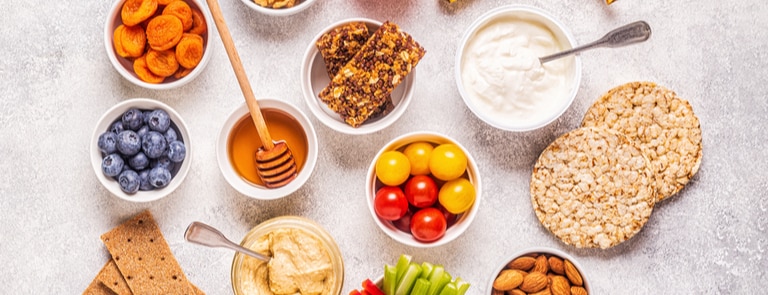

-
Zero refined sugar
Refined sugars are everywhere.
From the white granulated sugar we stir into tea and coffee and fizzy drinks, to white bread, dairy products like whole milk, and ready meals – processed sugar is everywhere!
The sad fact is that a diet high in unnatural sugars has been found to contribute to several health issues, including obesity, type 2 diabetes and heart disease.11,12,13
Sticking to natural foods can dramatically reduce your sugar intake, even if you are a fruit lover.
Although some fruits contain quite a lot of sugar, like bananas, you also get dietary fibre, water, vitamins, minerals and other nutrients to balance it out.
How many people out there do you know that got sick by eating lots of fruit? Not many, we bet!
Handpicked content: 8 easy ways to cut down on sugars and sweeteners for a healthier lifestyle
-
Better quality
When you buy cheap food like processed meat and canned fish/fruit/vegetables, you are usually compromising on quality.
This is especially true when it comes to meat, fish and other animal products because if it’s that cheap to raise, slaughter, package and sell a being that was once alive, the quality has likely been forgotten about at some point.
For example, a cheap burger won’t have come from a healthy, grass-fed cow, it’s probably been mass-produced and fed processed food itself before becoming your meal.
Another example is processed fruit drinks and snacks - when you look at the ingredients label you will probably see something like 10% fruit.
Why have 10% fruit when you can have 100% fruit?
It’s sensible to be wary of these sorts of products, as even when the packaging claims ‘real fruit flavourings’ or ‘natural flavourings’ it can be deceiving.
-
Helps you maintain a healthy weight
Processed foods could cause weight gain over time.
This could be because they take less energy to digest and absorb than natural, unrefined foods.
There is also all the added sugar and fat that gets added to a lot of processed foods that can really rack up the calorie count.
If you eat more calories than you burn then your body will store it for later, usually as fat.
Not to worry, though, home cooking could be the key to managing your weight.
Natural foods are also usually a ‘safer’ choice if you’re trying to cut down on the calories, as you don’t always know how calorific a slice of cake or doughnut is.
-
Often cheaper
Eating homemade food is kinder to your bank balance.
Cooking meals with fewer ingredients at home tends to be cheaper than eating out or buying supermarket ready meals.
While it may be daunting and a little more expensive at first to buy all the herbs and spices needed to make natural food just as tasty as processed foods, it’s well worth it (and cheaper) in the long run if you can.
At home, you can save money and make several meals in batches to freeze and last you throughout the week.
Also, any leftovers can be saved and reheated to eat another day.
-
Can be more convenient
Simple food is quick and easy.
When you’re hungry and in a hurry, grabbing processed foods like packets of crisps or a microwave meal to eat can seem quicker than making yourself at home.
Let’s face it, sometimes it is, but whipping up a healthy salad, stir fry or heating up something you’ve made earlier can take mere minutes.
What’s more, you don’t even have to leave the house.
So, when you factor in the walk to the takeaway/supermarket, grabbing something simple at home like fruit can be more convenient.
-
Keeps things simple
You’ll know exactly what’s on your plate.
Some pre-packaged meals and foods are not what they seem.
Unless you read the labels, you’d most likely be unaware of that many contain high levels of fat, salt and sugar.
If you prepare and cook your own meals, the food you eat is no longer a guessing game.
-
A safe choice for allergies/intolerances
It’s easy to control food allergies and intolerances.
If you or someone in your family has a food allergy, you’ll understand the importance of avoiding ingredients that trigger symptoms.
Managing food allergies is a lot simpler if you take control of cooking your own food in your own kitchen with ingredients you trust.
You don’t have to spend lots of time checking for ‘may contain’ warnings or have to place your trust a chef / fast food worker to keep your food safe and allergy free.
Handpicked content: Could you have a food allergy?
-
Better for the environment
Picking up some veg from the local greengrocer and popping it in your reusable bag is a much eco-friendlier choice than ordering a takeaway and all the plastic that can come with it.
Not to mention the environmental impact of cooking, transport and running a fast-food establishment.
Focusing on fresh, locally grown food can help reduce your environmental impact.
The final say
There you have it, next time you’re tempted by crisps or a stodgy pastry, remember that avoiding prepared foods and choosing fresh, natural foods could save you time, money and do wonders for your waistline.
You don’t have to be perfect and 100% au natural when it comes to your food and drink – life and circumstances can easily get in the way.
Just know that every natural food you can add to your diet is a great choice for your overall health.
Last updated: 24 August 2021
- www.soilassociation.org/take-action/organic-living/what-is-organic/
- https://ec.europa.eu/info/food-farming-fisheries/farming/organic-farming/organics-glance_en
- https://www.nhs.uk/live-well/eat-well/what-are-processed-foods/
- https://fdc.nal.usda.gov/fdc-app.html#/food-details/170569/nutrients
- https://fdc.nal.usda.gov/fdc-app.html#/food-details/746771/nutrients
- https://www.ncbi.nlm.nih.gov/pubmed/15613992
- https://www.hsph.harvard.edu/nutritionsource/2015/11/03/report-says-eating-processed-meat-is-carcinogenic-understanding-the-findings/
- https://www.ncbi.nlm.nih.gov/pubmed/19381015
- https://www.ncbi.nlm.nih.gov/pmc/articles/PMC3492709/
- https://www.heartuk.org.uk/low-cholesterol-foods/choose-low-cholesterol-foods
- https://www.ncbi.nlm.nih.gov/pubmed/23482247
- https://www.ncbi.nlm.nih.gov/pmc/articles/PMC3402009/
- https://www.ncbi.nlm.nih.gov/pubmed/23594708
